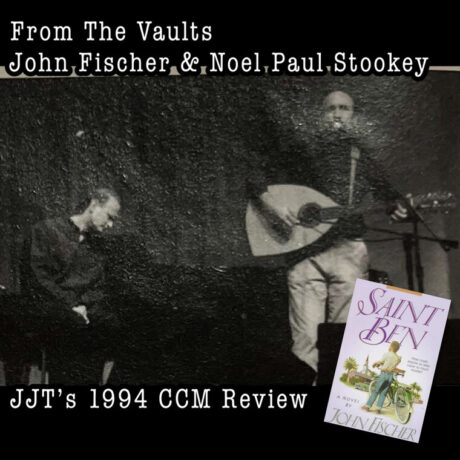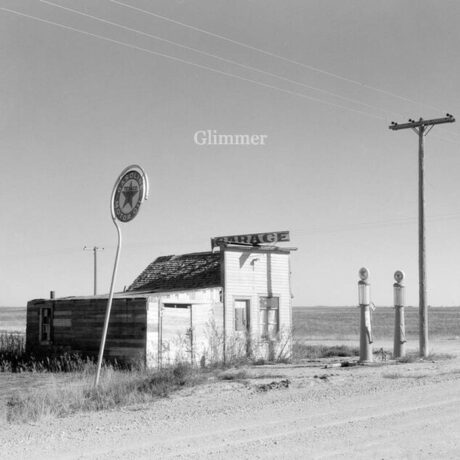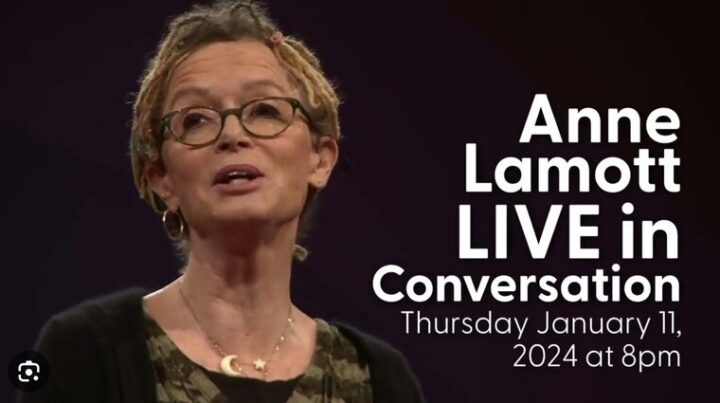The Indigo Girls’ Look Long and Find Grace
 In 1989, a music fan looking for signs of spiritual light and life in the real world likely found plenty of reasons to be encouraged. Bonnie Raitt had a hit on the radio with John Hiatt’s song asking if we were ready for a “Thing Called Love,” Bob Dylan was recording with Daniel Lanois, singing “Ring them bells for the blind and the deaf… for all of us who are left…for the chosen few,” and even Madonna was mixing sacred symbols with her usual sexual references in “Like a Prayer.” Meanwhile, a mostly acoustic duo coming out of Georgia was taking college radio by storm with its self-titled major-label debut album. Indigo Girls went on to capture the Grammy Award for Best Contemporary Folk Album that year.
In 1989, a music fan looking for signs of spiritual light and life in the real world likely found plenty of reasons to be encouraged. Bonnie Raitt had a hit on the radio with John Hiatt’s song asking if we were ready for a “Thing Called Love,” Bob Dylan was recording with Daniel Lanois, singing “Ring them bells for the blind and the deaf… for all of us who are left…for the chosen few,” and even Madonna was mixing sacred symbols with her usual sexual references in “Like a Prayer.” Meanwhile, a mostly acoustic duo coming out of Georgia was taking college radio by storm with its self-titled major-label debut album. Indigo Girls went on to capture the Grammy Award for Best Contemporary Folk Album that year.
That’s right, the Indigo Girls sang “neo-folk” songs that captured hearts and minds on college campuses and beyond by taking on the childhood insecurities we all share. On the Southern rock-leaning “Kid Fears,” the duo suggested that we “Replace the rent with the stars above/Replace the need with love.” And when Amy Ray, who sings the lower alto parts and tends to write the group’s rockier material (first time I saw them, she wore a Replacements t-shirt,) was looking for a metaphor for a love connection that’s good for the long haul she turned to the biblical “Land of Canaan.” Her musical partner Emily Saliers—the soprano singer who also plays most of the lead guitar parts to Ray’s sturdy rhythms—confessed her search for spiritual answers in the album’s biggest hit, “Closer to Fine.” She describes seeking insight in philosophy classes, from all manner of religious authorities, and even a night of drinking, only to reach a point where she was finally willing to live with the questions, saying “the less I seek my source for some definitive, the closer I am to fine.”
Thirty-one years and more than a dozen albums later, the Girls are still at it. With the promise of a new album on the horizon, they came to play a show at the Victoria Theater (Dayton, OH) in early March, just prior to the COVID-19 shut-down. It was a lovely night, where Saliers and Ray—supported by violinist Lyris Hung and joined late in the show on harmonies by Becky Warren—mixed songs from the promised, Look Long, with an expected list of fan favorites. They played “Get Out the Map,” “Go,” and “Shame On You,” but as anticipated, closed out the night with “Galileo,” from their 1992 album Rites of Passage. The song recalls the father of observational astronomy, who was called a heretic by the Church when he confirmed the Copernican view that, primitive Biblical perspectives notwithstanding, the Sun – and not the earth – is the center of the solar system. Saliers’ interest in Galileo’s quarrel with the Church harmonized with the journey many of us have had through the culture wars, organized religion’s anti-scientific beliefs, and anachronistically conservative political allegiances. “Can a soul ever get it right?” the two singers harmonize, “Can any human being ever reach that highest light? Except for Galileo, God rest his soul/King of night vision, king of insight.”
On the duo’s latest album, Look Long, they continue to wrestle with the angels and demons that attend those raised in the religious South, with the benefit of age, experience, and a solid following of adoring and supportive fans. In the album’s title track, Saliers, who is the daughter of a United Methodist pastor, describes a road trip where she and her companion “talked about God and the devil.” As the lyric unfolds she describes her struggle with patriotism, acknowledging “I will always love my troubled nation, this beautiful land.” Then confronted by the similar challenge of maintaining religious convictions, she writes that, when asked “will you keep the faith, I said I will” but admits there’s no sense of certainty. “So we argue and we wrestle and we claim conviction/but we might as well be flipping coins,” she writes before concluding, “God bless our brave little hearts and our inherent limitations/and our short-sighted plans and our collusion/look long.”
Another famous Southern female writer, Flannery O’Connor once suggested that “while the South is hardly Christ-centered, it is most certainly Christ-haunted.” Clearly, Saliers was haunted enough to collaborate with her pastor/church musician father Don Saliers on a book titled, A Song to Sing, A Life to Live; Reflections on Music as Spiritual Practice, where they both describe the spirituality of music, and its ability to heal human hurts and shape community.
While Saliers describes herself as having a “lover’s quarrel” with the Church, Ray’s songs are similarly haunted at times. In “Shit Kickin’,” the new album’s opening track and more of a rocker, she describes growing up a bit of what used to be called a “tomboy,” as she rode horses bareback and a Honda trail bike. She then writes, “Granddaddy was a preacher/Built that church from the sand to the steeple/I didn’t know him except by his journaling hand/If you can find him you can love him/But girl you gotta be honest about him/Or you’ll be fightin’ them weeds for the rest of your days/I’m a little bit left of the salt of the earth/But that’s alright, I’ll prove my worth/A little bit right of my family/To make my way through this world/In spite of everything.”
In her meditation on the thing that makes some people need to put words on paper, Saliers describes the way every creative person tries to make deals with God, but when she finally describes the practice of the craft in her song, “When We Were Writers,” she falls back on an idea straight from scripture, “The slings and arrows the passage narrows/The story harrowing, the word becomes flesh.” Then in the song “Change My Heart” she writes about all the physical and metaphysical forces in a person’s life, the things that pull or push us this way or that. “Change my heart/Put me in the force field of the believers… Change my mind when I think I understand things that I can’t/I can draw from the power but the power isn’t in my hands.”
In “Muster,” Ray writes about kids growing up in a world full of divisions, whether it be a marriage that comes apart or the wars that often define the history of human relations or the failures thereof. To express the hopes and dreams for a better world while being honest about what’s broken in the one in which we live, she writes “I don’t know where we come from, what I know is that we ain’t done/We got the river running, we got the animal cunning/The back of the turtle, the Garden of Eden, the cosmic dust/Why do we keep on gunning? I got no use for these ramparts, ivory towers or the lines in the sand/I think enough of the time, we want the same thing.”
But as someone who’s been a pastor for more years than I can remember, the song at the heart of Look Long, that preaches the Good News most clearly, is “Country Music.” Saliers writes about a kid growing up in a small town, who works a job down at the food court at the mall and lives vicariously through the love songs she hears on the radio. The music itself is the only salve she knows for her “lonesome refrain, the secrets and pain” that come from feeling that she’ll never find her own happy ending. But in the music, they dream of what might one day be possible: “I wanna be that boy, I wanna be that girl/I wanna know what it’s like to fall in love/Like most of the rest of the world/But as far as these songs will take me/is as far as I’ll go/I’m just a gay kid in a small town/who loves country radio.” That song reaches out to all in the LGBTQ community who’ve heard from family and church folk that there’s something wrong with them and that they do not deserve a happy, fulfilling life of love. And while Amy Ray and Emily Saliers are not theologians in the strictest sense, their art, delivered with honesty and integrity, is tapping a deep unmet spiritual need.
When the Indigo Girls performed “Country Music” at the Victoria Theater back in early March, the song had not yet been released, but you could feel the shudders and sweep of recognition pass through the audience as it hung on every word. It’s no secret that both Saliers and Ray are lesbians, and often their concert crowds lean toward LGBTQ and LGBTQ-friendly fans who recognize their music as a safe place to be themselves. The song acknowledges that secret, lonely, longing, and suggests that it’s not that uncommon at all. There are thousands of kids out there like that one “gay kid in a small town,” and the very fact that the Indigo Girls are able to tell that kid’s story in a song for an affirming audience, holds up the hope of a better day; a future where the desire for love and acceptance is possible, not just the stuff of love songs on country radio.
For over three decades, Saliers and Ray have been singing that world into existence, one concert, one song, one harmony at a time. The light and life of God’s love flows in and through their music whether they recognize it that way or not, but as a long-time fan, I’ve found it to be true in my own life. And, Look Long proves that they still have more to say that matters, more songs worth sharing with all of us.
By Brian Quincy Newcomb




